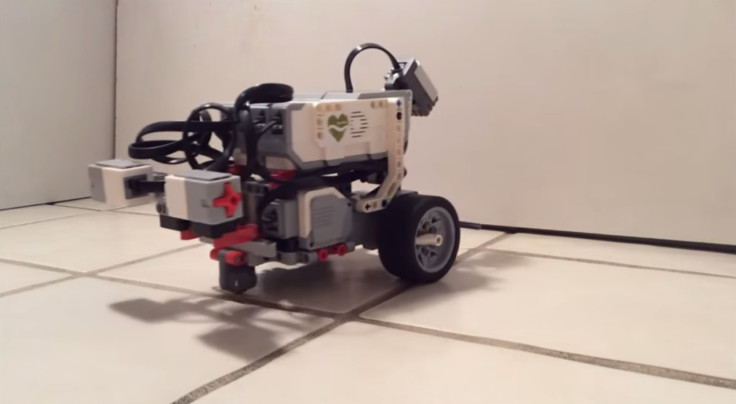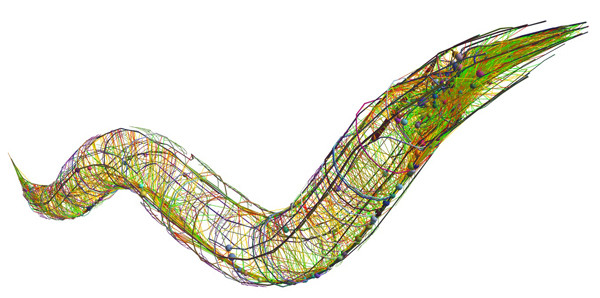Lego robot controlled by artificial worm brain developed by OpenWorm project

Artificial intelligence researchers are developing a digital version of a worm brain that can be uploaded into a LEGO robot and reproduce the creature's thoughts and actions.
The OpenWorm project is dedicated to creating the world's first digital organism by mapping the mind - or connectome - of a Caernorhabditis (C.Elegans) worm.
The aim is for the robot to mimic primitive worm behaviours like feeding, locomotion and mate-finding. However, the independently controlled LEGO robot is currently limited to obstacle avoidance.
Without any prior programming the connectome is able to control the robot, while sensors allow it to react to its environment.
"We are using a bottom-up approach, aimed at observing the worm behaviour emerge from a simulation of data derived from scientific experiments carried out over the past decade," the researchers said.
"To do so we are incorporating the data available in the scientific community into software models."

Mapping the mind
Ultimately, the OpenWorm project could prove that it's possible to upload a human brain to a computer.
Attempts are already underway to map the human connectome and understand its complete structural and functional neural connections, however the scale of the task is orders of magnitude larger.
"Male C. Elegans have 1,031 (synaptic cells)," the OpenWorm researchers said. "The organisms' neural circuit, made up of only 302 neurons, is extremely primitive, especially when compared to the approximately 100 billion neurons and the 60 trillion connections between them - known as synapses - that make up the average human brain.
"However, as a result of its simplicity, transparent nature and the well characterised cell lineages, the entire pattern of neuron connections - or connectome - of the C. Elegans has been mapped."
The OpenWorm project is still awaiting peer review but an open-source virtual model of the worm - complete with an elastic body - will be released online in June.
© Copyright IBTimes 2025. All rights reserved.






















